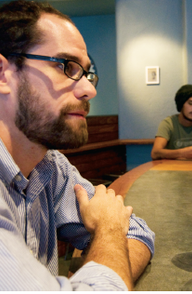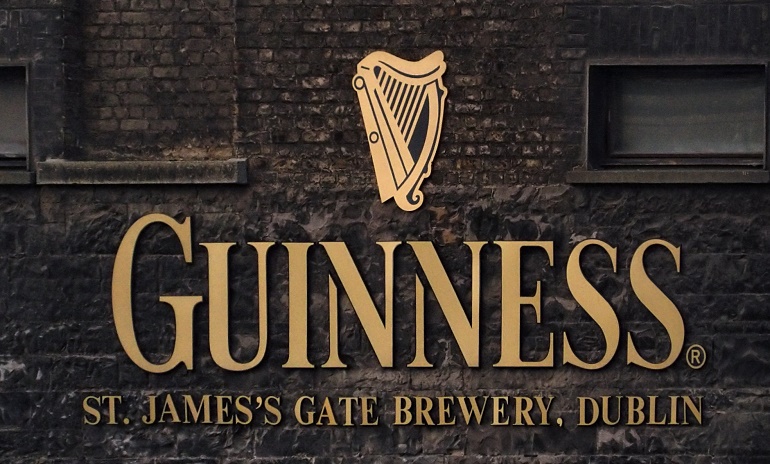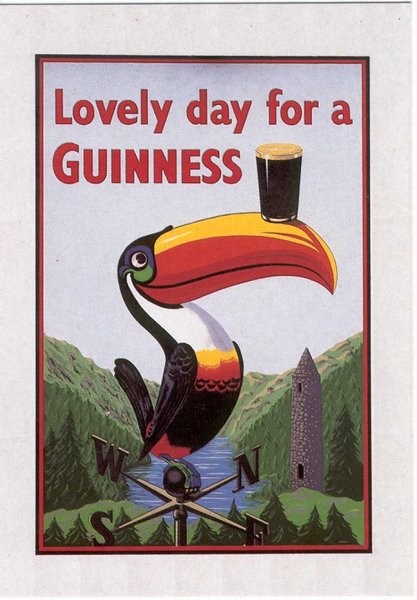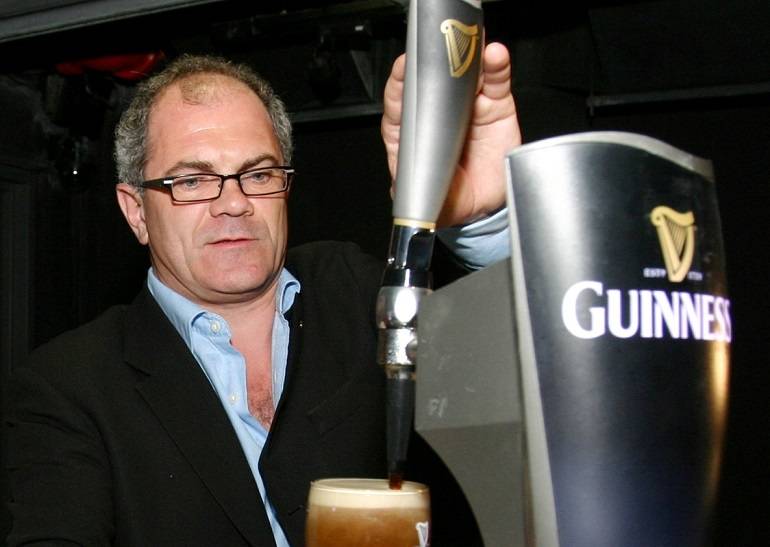Start 14-Day Trial Subscription
*No credit card required

A Talk With Guinness Brewmaster Fergal Murray
Fergal Murray, Brewmaster for Guinness, has been with the brewery for 26 years now, but he began his time at the St. James’s Gate Brewery in Dublin as a research chemist. Now he’s the face of the 250-plus-year-old brewery, whose black nectar is currently produced in 44 countries around the globe. With the title of head brewmaster and brand ambassador, he stays busy preaching the gospel of Guinness, which – it goes without saying – undoubtedly reigns as the world’s most ubiquitous high-quality beer.
“If Arthur Guinness was around today he probably would be doing what I’m doing, out there speaking about what he’s produced and how he produces across different markets around the world,” Murray said in an interview earlier this week at the Fado Irish Pub in Buckhead. He’s been busy lately traveling the world in celebration of the brewery’s milestone anniversary, which was marked by a limited-edition brew, released only in America, Australia and Singapore, that employs carbonation rather than the usual nitrogen to add more effervescence to the iconic beer.
It is said that more than 1.8 billion pints of Guinness are consumed around the globe each year, but the brand, which is owned by the large Diageo conglomerate, accounts for a relatively small share of the beer market in the United States. If that is going to change, Murray said, it is crucial that Guinness be presented properly far and wide, thus giving drinkers the full intended experience of the beer.
 “There’s four things that are fundamental to a great beer-drinking experience,” he said. “One is the great pub, bar, and that doesn’t have to be aesthetically gorgeous, it just has to be comfortable for you at that particular moment. It could be a beach bar, it could be a jungle bar, the Himalayas, or whatever, it’s just, ‘There it is. I think I need a beer. I feel like this could be great, let’s go in here.’
“There’s four things that are fundamental to a great beer-drinking experience,” he said. “One is the great pub, bar, and that doesn’t have to be aesthetically gorgeous, it just has to be comfortable for you at that particular moment. It could be a beach bar, it could be a jungle bar, the Himalayas, or whatever, it’s just, ‘There it is. I think I need a beer. I feel like this could be great, let’s go in here.’
“And you go in there and the next thing you want,” he continued, “is to have a bartender who does it in a professional way, in a way, you know, he’s not going to surprise you. The worst thing for me is to see someone who doesn’t pour a pint in the way that sort of gives the best next result, which the next result is the visual impact. And to try to state that to a bartender is critical. When you do it correctly, and no matter what it is, but certainly if you do Guinness and you get a cascade, surge, settle and two-part pour and top it off with a nice dome, that part, one is you’re going to be, like, respected – you’ve done a fantastic job, which is critical. And the second part is the customer is just going to say, ‘That looks gorgeous. Well done, mate. Thanks very much.’ Because you need to take that moment in time to visually recognize that this is beautiful and it’s gone through all the steps. So the fourth bit then,” he added, “is understanding how to consume it and get the value from the taste, the value from the extra hops, the roasted barley, the 250 years of tradition, all that sort of stuff. And those four elements are critical.”
Murray’s mission to make sure Guinness is given the full treatment wherever it is served is what brought him to Atlanta. The night before sitting down to talk at Fado, he had helped judge the 8th-annual Perfect Pint competition at Taco Mac’s Lindbergh location, where dozens of bartenders from establishments around the area, including the Brick Store Pub, Atkins
Park, the Brewhouse Cafe and many Taco Mac locations, came out to face off against one another and test their pouring skills.
(Check out this video to see Murray himself demonstrate the art of the perfect Guinness pour, which, it is said, should take precisely 119.5 seconds.)
At this year’s event, he said, virtually every contestant performed well. “We were finding it very challenging,” he admitted. “We were hoping that people would make a mistake. It wasn’t an easy decision.”
The contestants faced off in a bracket-style format, first competing three at a time and then moving on to dual pour-offs in the semifinals. When all was said and done, Megan Martin from the Taco Mac Johns Creek in Suwanee, Ga., took home the top prize, topping Asa Kaufman of Atkins Park Smyrna in the final round.
Murray said he could tell right away that Martin had the pouring chops to take first place. “If she was going to be knocked down she had to be knocked down by someone brilliant,” he said.
“There’s no other beer that really can actually have a perfect pint pouring contest, to be fair, because there’s nothing really in pouring anything else,” he said. “So as a bartender, I’d love everybody to recognize or get training and learn that, and I think that if it’s on your C.V. that you can pour a decent pint of Guinness you can always get a job as a bartender."
“So as a bartender, I’d love everybody to recognize or get training and learn that, and I think that if it’s on your C.V. that you can pour a decent pint of Guinness you can always get a job as a bartender."
The Perfect Pint event had a raucous, festive atmosphere, but the heart of it, like everything Guinness, is serious business. So serious, it seems, that Murray said he wants beer drinkers to know they should send back a Guinness when it is not poured properly. “Consumers must deliver it back to the bartender if they don’t do it,” he said. It’s perfectly appropriate, he believes, to say, “That didn’t come out right, can you pour that again please or I’m not coming back here.” Murray wants to make sure Guinness fans know that they “have that right,” he said, “because the customers getting it bad will stop our brand growing.”
Asked what he sees as the heart of Guinness’s appeal and the reason it holds such a high place among passionate beer lovers, Murray said, “viewed from a consumer point of view, you’re getting a distinctive sort of bolder, unique sort of flavor. People want to describe it in whatever way they want to describe it, but there actually is just pure Guinness flavor. You can’t say it’s caramel, or roasty,” he continued. “It tastes just like Guinness. And I think that boldness and what we can say about that gives it a great position in the beer market.”
Unwilling to simply rest on the brand’s reputation and devoted following, Murray reflected on his role and the future of his work at Guinness. “You continue to always learn as a brewer,” he said. “You know, there’s no finite end. So I think that when you become a craftsman, no matter what it is, then you’re always interested in how that craft’s developing.”
Next month when St. Patrick’s Day rolls around and you reach instinctively for a Guinness, think about all the work that went into the beer over the past two and a half centuries, and, beyond the brewing itself, all the attention that is being paid to they way it is served. Because indeed, a truly spectacular beer deserves an equally good presentation.



